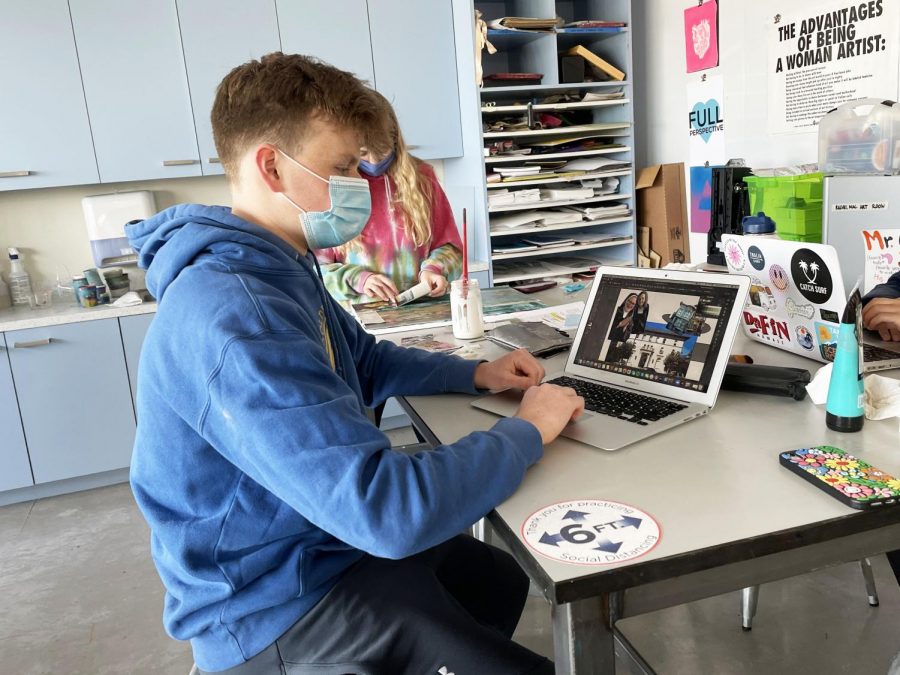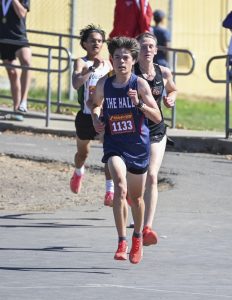Using the digital edge
IB seniors alter CAS projects during pandemic
Senior Mattheus Tellini works on his CAS project, which has taken on a partially digital form. Many IB students moved their projects to digital media in response to restrictions on in-person interaction due to the COVID-19 pandemic.
March 26, 2021
Many IB seniors have altered their CAS projects to adapt to the challenges of the COVID-19 pandemic, as safety regulations barred students from pursuing project categories that required large amounts of in-person interaction.
“When COVID-19 hit last March, students were trying to put together their proposals,” IB CAS Coordinator Emily Brenner said. “We really didn’t know what was going to happen. Maybe we’re going out for a few weeks, and then maybe we would be back.”
CAS, which stands for Creativity, Activity, Service, is a core component of the International Baccalaureate program that serves as a student-initiated challenge with careful planning and reflection, according to the IB website.
“When I was doing second CAS interviews with the current seniors, we were speaking very tentatively with ideas that needed to be in-person,” Brenner said. “We also wanted to have a Plan B.”
While students returned to campus in November, ongoing health and safety regulations have altered what was and currently is possible for their projects.
“I was originally planning on doing an art piece where each viewer would have to wear 3D glasses to see it,” senior Mattheus Tellini said. “Nowadays, it’s not so wise to be sharing objects such as 3D glasses, and I didn’t want to have to order a ton of glasses and waste them for one-time use.”
The pandemic has given some seniors the opportunity to explore and reevaluate their projects. While COVID-19 affected and influenced their projects, juniors are finding ways to do their projects safely and without having to worry about restarting far along in the process.
“My CAS project was not really affected by COVID-19,” junior Aiden Guibert said. “I realized people need to find cheaper alternatives to recipes while in college, and I will be posting around five different cooking videos on a website that I will create.”
Despite the challenges that the pandemic and shift to online learning caused, some students overcame their hurdles by utilizing digital tools and technology.
“There has definitely been a rise in digitally-based projects,” Brenner said. “While it may be because of our uncertain future, I feel students’ digital skills have really improved over the past year. It may be a function of necessity, but maybe it’s also a function of emerging opportunities.”











